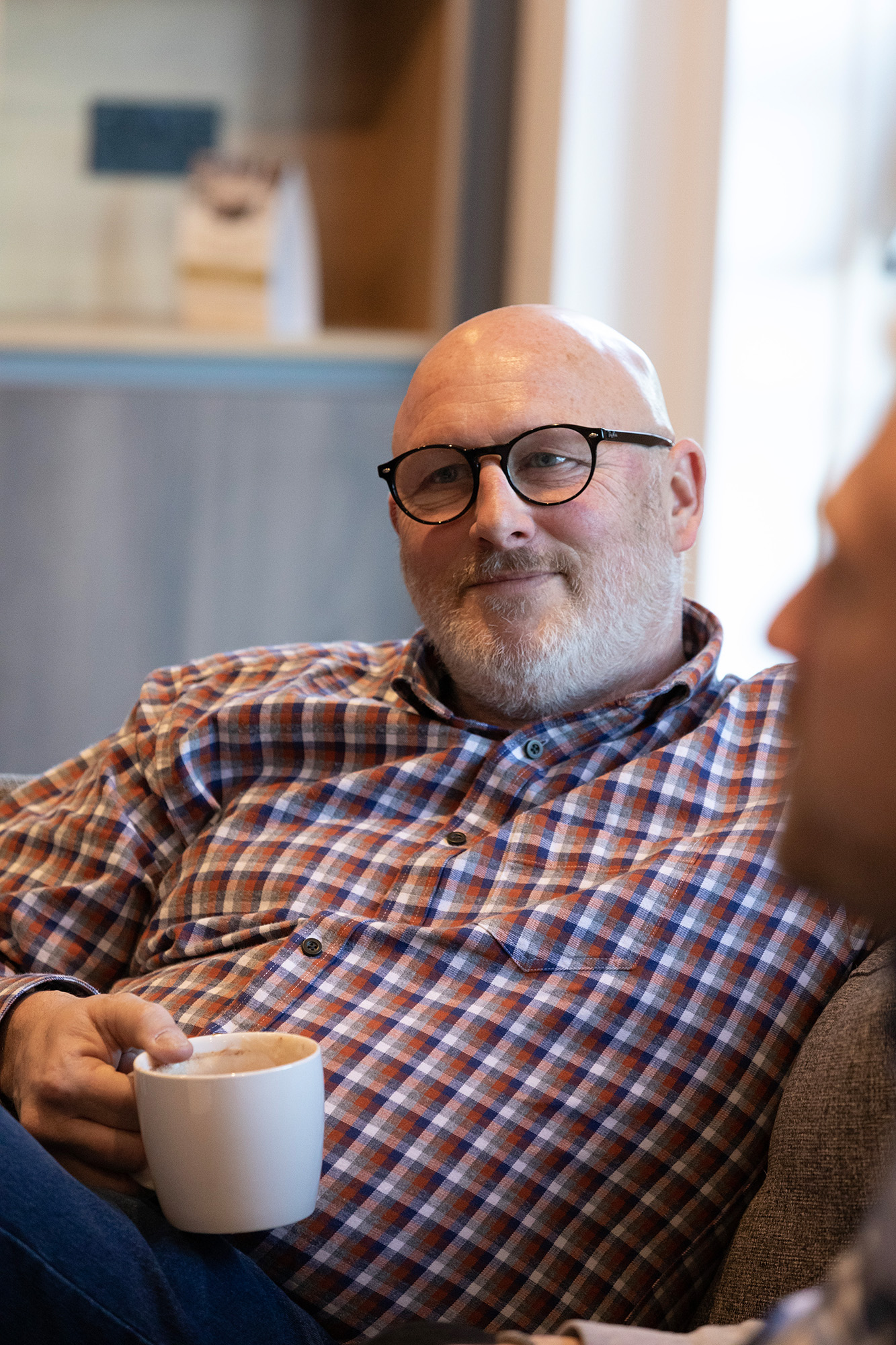Meet Steve Lees, founder of Coach for Growth and the creator of Frankie Gritt Get Sh*t Done Club – a refreshingly no-nonsense business advisor who left school with no qualifications and climbed his way from “no-hoper” to corporate chief executive before finding his true calling: helping solo entrepreneurs build sustainable businesses. His journey has been anything but linear – from corporate leadership to business failures, from imposter syndrome to leading with humanity. Today, Steve specializes in working with solo entrepreneurs who’ve reached that critical realization that their passion and skill can only take them so far, and they need to become professional business people to truly thrive.
Humans of Fuzia is honored to feature Steve’s inspiring story as part of our mission to showcase leaders who are committed to empowering others. His dedication to making business coaching accessible and affordable, particularly for solo entrepreneurs, aligns perfectly with our community’s values. Notably, the majority of Steve’s clients are women – drawn to his authentic, action-oriented approach that combines tough love with unwavering support. Through his story, our community of 5.2 million entrepreneurs and changemakers across 35+ countries can learn valuable lessons about persistence, vulnerability, and the power of building a business that serves the life you want to live.
You had quite an unconventional path to entrepreneurship. Can you tell us about your journey?
I left school with no qualifications because I didn’t understand school – no one explained to me how important it was. I had lots of dead-end jobs, but I had one of those moments where you meet someone who sees something in you that you don’t recognize. I’ve had that moment twice in my career, and it really launched me into realizing that leadership was where I saw my future – the ability to get the best out of other people.
I went from a no-hoper to someone who climbed through corporate leadership, moved into board positions, and ultimately chief exec roles, sitting at the head of the table and wondering most of the time how on earth I managed to get there. I’ve suffered with imposter syndrome and doubting my own ability. One of the businesses I led went bust, which was extremely painful. But I try very hard not to see things as success and failure – I think you either win or you learn.
What made you decide to leave the corporate world and start your own business?
I had some things going on in my private life that made me question whether I wanted to stay in the corporate world. I had a reasonably good career and we were fairly well set up, but I had this overriding feeling that I wanted to help other people learn from the mistakes and experiences I’ve had. So I took the plunge and left with the intention of setting myself up as a consultant.
I was very lucky – I met two investors who had a portfolio of businesses, and they asked me to help them work through problems. But I woke up one morning and thought, “Actually, Steve, you’re basically still employed.” So I left those investors amicably, trained to become a coach, and set out properly on my own journey.
Who did you originally think you wanted to work with, and how did that change?
When I started, I thought I wanted to work with established businesses in the one to five million pound revenue bracket – businesses with teams where I’d help the chief exec grow. But that just didn’t float my boat at all. The people I really enjoyed helping were solo entrepreneurs – those people who made the leap and jumped off the edge of that cliff into that mad world of self-employment. Their skill and passion had taken them so far, but they reached a point where they realized if they wanted their business to really support them, they had to learn how to become a professional business person.
But there’s a real conundrum – these are the people who most need and are most willing to accept help, but they can least afford it. I think business coaching has a mental view that has a big ticket attached to it. I wanted to break that mold.
What are the six things you help entrepreneurs master?
First, do you really know where your destination point is – and that’s you as a human being, not your business. One of the first things I get solo entrepreneurs to understand is they are not their business and their business is not them. When you understand your personal destination and why it matters, when the journey gets hard, you don’t change the goal – you just find a different route.
We work out what time and money your business needs to give you, then transpose those onto the business. Second, we check the foundations around how they acquire new customers – things like Google business profile, LinkedIn profile that doesn’t look like a CV, making it clear what they do. Third, we work on articulating their product or service – most business owners know what they do but find it intensely difficult to explain it. Fourth, we master the numbers – business is just a numbers game. Fifth, we tackle marketing in three phases: understand your market, craft your compelling message, then determine where to put it. And finally, we build that nurturing process – really good business owners know most people aren’t ready to buy right now, so you have to help them climb that buying triangle.
You mentioned that most of your clients are female. Why do you think that is?
I don’t go out looking for female people to work with, but there’s something about what I do and how I do it that attracts them. I think two things: they’re more willing to listen to advice, and they are absolutely 100% committed to taking action. Even if it makes them a bit scared, they just go for it. You have to have that drive behind you because running a business can be quite challenging.
Have you experienced imposter syndrome, and how do you help entrepreneurs deal with it?
I genuinely believe that every business owner has to some degree an element of imposter syndrome. Everyone’s brain at some point says someone’s going to find out you aren’t actually capable of doing what you’re doing. I remember when I was a partner at a law firm, a trainer asked us to write down what we’re most scared of. I wrote: “Someone will find out that actually I don’t know what I’m doing.”
As a business owner, you need to have a small group of other business owners that are your inner circle who you can talk to, vent to, cry with. It has to be business owners, because if you haven’t been one, you really don’t know what it looks and feels like. If you share your concerns with the right group, they step forward and provide you with that absolute certainty that you’ve got this.
What would you do differently if you were starting again?
I wish I’d built that group of inner people quicker. I wish I’d realized you don’t have to do it on your own. Most business owners are willing to give other business owners time, a shoulder to cry on, a pair of ears to listen, because they’ve been there. It’s not about competition. Building that group of support – I wish I’d done that much quicker. I would have made less mistakes and gone down less wrong turns.
What kind of legacy would you like to leave behind with your work?
If people said after working with me, “Steve helped me do things that I didn’t know I was capable of doing,” I’d be a happy man.
“I try very hard not to see things as success and failure. I think you either win or you learn. And as long as you learn from the things that don’t go according to plan, what you end up with is lots of knowledge.”
Connect with Steve Lees:
LinkedIn- https://www.linkedin.com/in/stevelees/
Facebook- https://www.facebook.com/profile.php?id=61554739558232
Website- www.frankiegrit.com, www.coachforgrowth.info
Want to be featured? If you’d like to be featured in the Humans of Fuzia series, email us at fuziatalent@fuzia.com.










